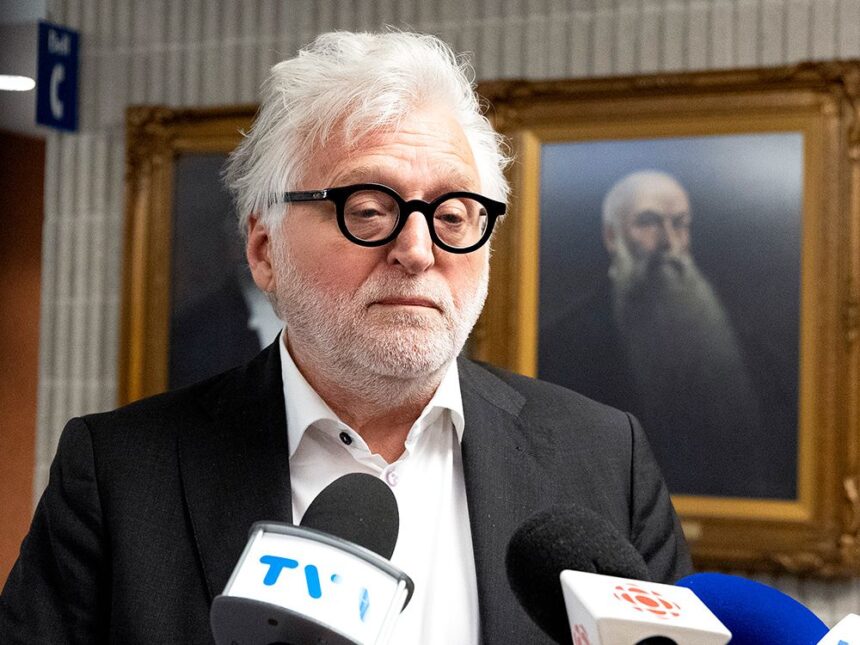The founder of the world-renowned Just For Laughs comedy festival took the stand in a Montreal courtroom Tuesday, vehemently denying accusations of sexual assault that have shadowed him since the height of the #MeToo movement. Gilbert Rozon, once a titan in Canada’s entertainment industry, faced his accuser directly as the civil trial entered its second day of proceedings.
“I did not assault her,” Rozon testified firmly, responding to allegations from plaintiff Annick Charette, who claims the comedy mogul sexually assaulted her at his home in 1994. This high-profile case represents one of several accusations that emerged against Rozon in 2017, triggering his resignation from the comedy empire he built over four decades.
Charette’s testimony described a disturbing encounter following a launch party, where she alleges Rozon insisted on driving her home, diverted to his residence, and ultimately assaulted her. The plaintiff, who has waived her right to anonymity, is seeking $1.3 million in damages – a figure Rozon’s defense team characterizes as excessive.
The courtroom atmosphere was tense as Rozon’s attorney questioned inconsistencies in Charette’s account, particularly regarding the timeline of events and details she previously couldn’t recall during police interviews. “Memory doesn’t work like a video camera,” noted forensic psychologist Dr. Judith Harper, who testified as an expert witness. “Trauma can significantly impact how events are remembered and recalled, especially decades later.”
This civil case follows a 2020 criminal trial where Rozon was acquitted of separate sexual assault and indecent assault charges due to reasonable doubt. However, the burden of proof in civil proceedings is notably lower, requiring only a preponderance of evidence rather than proof beyond reasonable doubt.
The allegations against Rozon emerged amid Canada’s reckoning with sexual misconduct in powerful institutions, sparking a broader conversation about accountability in the entertainment industry. The Just For Laughs festival, which Rozon founded in 1983, has since been acquired by an investor group including comedian Howie Mandel.
Legal experts observing the trial note its significance extends beyond the individual case. “Civil proceedings like this represent an alternative path to justice for those whose criminal complaints may not meet the higher threshold for conviction,” explains Martine Côté, a professor of law at McGill University. “The outcome could influence how similar cases are approached in the future.”
As the trial continues, it highlights the complex intersection of legal standards, personal testimony, and the cultural shift in how sexual misconduct allegations are addressed in Canadian society. Whatever the verdict, the case underscores the enduring impact of the #MeToo movement on accountability structures within the entertainment industry and beyond.
As this landmark case unfolds in the coming days, a pivotal question remains: how will our justice system balance the fundamental right to due process with the equally crucial imperative to provide meaningful recourse for victims of sexual misconduct?
























